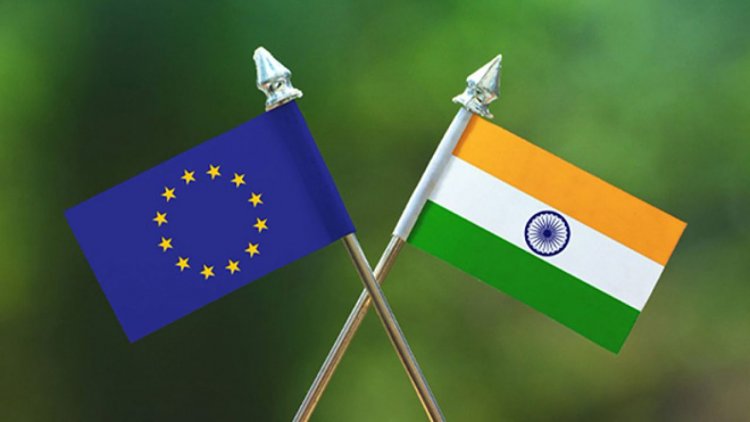India - EU: FTA Negotiations
STORIES, ANALYSES, EXPERT VIEWS

There are anti trade currents in the European Union (EU). So, John A Clarke (Ex-Director, International Affairs, European Commission) discusses whether the free trade negotiations now underway between the and India fall victim to these anti-trade currents.
The decision to resume negotiations on the India - EU FTA “was clearly for geopolitical reasons: an early sign of Europe’s Indo-Pacific tilt, a part of each region’s post-Covid recovery strategy, and a recognition of the need to diversify markets and sources of supply.”
Foot-dragging, lack of interest
But, for 13 months, nothing happened. “Each side accused the other of foot-dragging, lack of interest, etc. And once negotiations actually did start in 2022, lofty rhetoric soon gave way to haggling over the same subjects that had bedevilled 2013: agricultural and car tariffs, patent length, procurement, financial services, business visas for Indian entrepreneurs. The declared aim to conclude the negotiations in 2023 soon became a mirage. And of course, India has a poor track record of FTAs.”
Premature to talk of FTA’s demise
Although there are reasons for scepticism, Clarke writes “the news of the FTA’s demise is premature for two reasons. First, all negotiations are difficult, including FTAs — easy to start but very hard to finish. So it is with EU-India, which is now entering what negotiation theorists call the standard ‘mid-game’ — getting down to the basics of trade, tariffs, rules, against the sweet sound of rolling-up of sleeves.
“Secondly, both the EU and India know that in today’s febrile political climate, where neither has exactly a surfeit of friends, they need to diversify. India can benefit from the stability and size of the EU market for its goods, services and professionals; the EU can make hay in the relatively untapped Indian market. The EU also needs a success story with India following multiple failures of its trade policy. The two sides — the world’s biggest, albeit flawed, democracies — could partner on an agenda straddling economic and food security, connectivity, human development and the fight against climate change.”
Both sides need to compromise
But for the FTA to succeed, at least two things must happen, according to Clarke. “First, India will have to make tough political calls and open some procurement, allow new service sectors and improve access for cars, dairy, wines and industry, notwithstanding its ‘Make in India’ motto.
“Secondly, the EU will have to reduce its ambition several notches — on procurement, access to sensitive sectors, and above all on the ‘sustainability’ agenda.”
To internationalise its net-zero ‘Green Deal’ aims, the EU has tabled a broad sustainability agenda, hoping that the leverage of 450 million consumers will entice India on board. That agenda encompasses health and safety, sustainable food systems and a chapter on sustainable development, committing the parties to adopt and enforce key human rights and environmental conventions — including their respective climate pledges.
“This risks overloading the Indian boat. Whilst India is ready to make sustainability pledges in the best-endeavour framework of G20, it will not do so in a binding treaty subject to sanctions or withdrawal of trade concessions. The EU’s agenda is easily painted as intruding into India’s sovereignty: not just green protectionism, but even regulatory imperialism….”
In short, if EU-India 2024 is to avoid repeating the misunderstandings of 2013, it is time for Europe to reflect urgently on what is realistically possible, to try to see the world from an Indian and Global South perspective and adjust its ambitions….”















